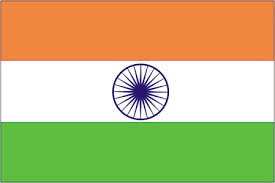Statement by Ms Devika Lal, Under Secretary (D&ISA), Ministry of External Affairs during the general debate of the Meeting of States Parties to the Biological Weapons Convention, in Geneva on December 4, 2017
Mr Chairman,
It is indeed an honour for India to see you chairing the2017 Meeting of the States Parties to the BWC. We felicitate the other members of the Bureau upon their election. We convey our deep appreciation to the Secretariat and the ISU for their support. We also take this opportunity to warmly welcome the delegation of our newest State Party Samoa among our midst.
2. India associates itself with the statement made by Venezuela on behalf of the Non-aligned Movement and Other States.
3. India attaches high importance to the BWC which is the first non-discriminatory disarmament treaty banning a complete category of weapons of mass destruction. We reaffirm our support for the final documents of all previous eight Review Conferences.
4. Notwithstanding the unsparing efforts made by Ambassador GyörgyMolnár of Hungary in his capacity as Chair of the 8thReview Conference, we share the disappointment among the States Parties that we were not able to adopt a decision by consensus on an inter-sessional work programme for 2016-2020. We sincerely hope that this Meeting of States Parties will be successful in delivering upon the specific mandate given to it by the 8thReview Conference,by making progress on issues of substance and process for the period before the 9thReview Conference, with a view to reaching consensus on an inter-sessional process.
5. When first established a decade and a half ago, the inter-sessional process was intended to be an interim phase to help get through a difficult period. It has achieved better than expected success, creating a vibrant community of States Parties, intergovernmental organizations, academic institutions, industry and NGOs. At the same time, it is also clear that the global regime against biological weapons and other risks to health security cannot be strengthened without strengthening the Convention institutionally and promoting its universalization.
6. India had participated actively both at the 8th Review Conference and in itspreparatory process, including during the Prepcoms held last year. India had submitted Working Papers with the US and France on Article III and Article VII respectively. As part of broader outreach, India had hosted a Regional Workshop in cooperation with UNODA and the EU in New Delhi in August last year, with over 60 participants from 26 countries. We were particularly pleased that Nepal which participated in this Workshop subsequently acceded to the Convention.
7. India remains committed to improving the effectiveness of the BWC and strengthening its implementation and universalization. We believe this is necessary in view of the new challenges to international peace and security emanating from proliferation trends, including the threat posed by terrorists or other non-state actors seeking access to biological agents or toxins for terrorist purposes. We believe that States Parties must ensure that their obligations under the Convention are fully implemented.
8. Verification of compliance is critically important for States Parties to be collectively reassured that the provisions of the Convention are being realized. In this context, India supports the objective of a multilaterally agreed mechanism for verification of compliance that provides the assurance of compliance by States Parties and acts as a deterrent against non-compliance. India shares the widespread interest amongst States Parties to strengthen the effectiveness and improve the implementation of the Convention through the negotiation and conclusion of a Protocol for that purpose covering all provisions of the Convention.
9. Review of new scientific and technological developments of relevance to the Convention is mandated by Article XII. India had submitted a Working Paper at the 7th Review Conference with specific proposals on conducting an S&T review. India also tabled a new resolution on “Role of science and technology in the context of international security and disarmament” at the 72nd session of the First Committee this year, which was adopted by consensus. There is a need for reaching a common understanding on a framework and criteria for assessing risks of relevance to the Convention. In our view, measures taken to mitigate biological risks should be proportional to the assessed risk and not hamper legitimate peaceful activities including international cooperation. Further, there should be no hindrance to peaceful activities such as vaccine development, which are important for developing countries for meeting their public health needs. As a major vaccine producer, India supports international efforts for ensuring timely and affordable access to vaccines, including during public-health emergencies.
10. The full and effective implementation of Article X of the Convention is important to generate equitable benefits for States Parties, in particular developing countries. In pursuance of the decision of the 7thReview Conference, India submitted a Working Paper in 2014 containing its National Report on Article X Implementation. We also submitted an updated National Report as a Working Paper for the 8thReview Conference. While India continues to attach high importance to the full and effective implementation of Article X, we believe that strengthened implementation of Article III would ensure that cooperation envisaged under Article X is taken forward in mutual confidence.
11. Effective national export controls are important tools to prevent the misuse of biological agents and toxins for purposes prohibited by the Convention or falling into the hands of terrorists, which is a major concern for the international community. India is committed to maintaining effective export controls in line with the highest international standards.
12. In conclusion, Mr Chairman, the long-term sustainability of the Convention should be rooted in legally-binding measures with all State Parties endowing collective confidence in the Convention. In this, the BWC could draw inspiration from the success of the CWC. We are aware that achieving this goal will take time. In the meantime, we should look for practical and pragmatic solutions on specific issues for follow-up in the inter-sessional period. That should also build the basis for mutual confidence to advance the institutional strengthening of the Convention.
Mr Chairman, I thank you.












